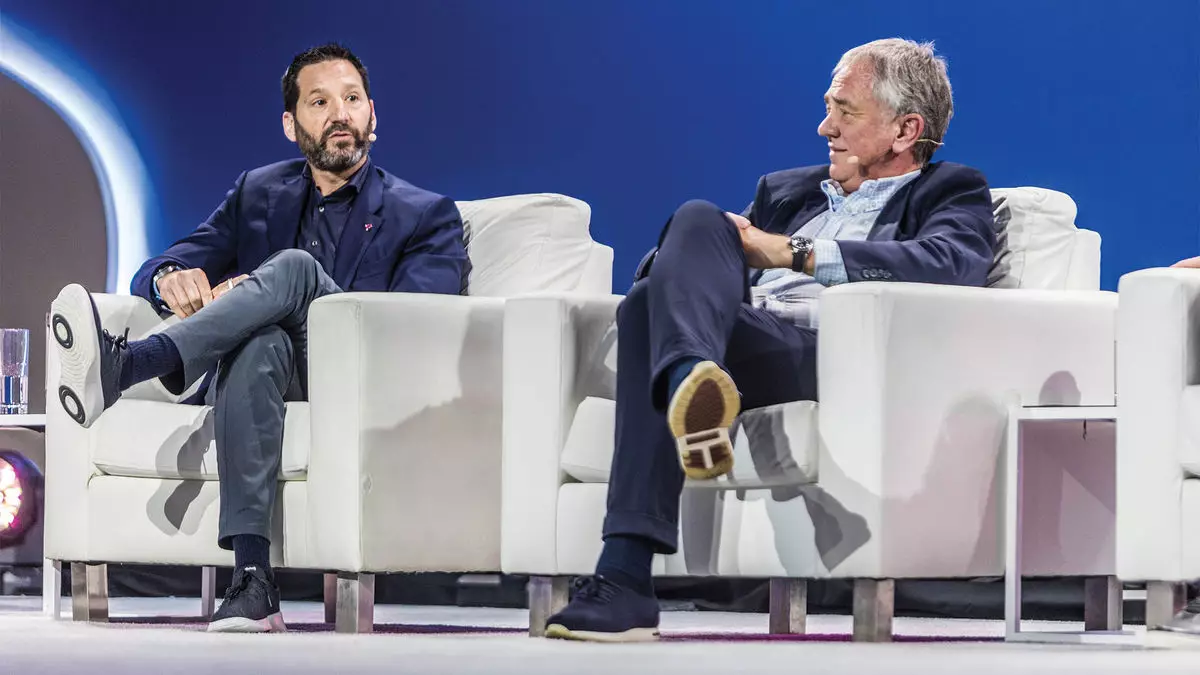Amidst fluctuating economic conditions, the cruise industry stands at a crossroads, grappling with shifting consumer sentiments. Executives from major cruise lines have recently gathered at the Seatrade Cruise Global conference in Miami Beach, where their discussions revealed a mix of guarded optimism and realistic acknowledgment of market challenges. As stock market volatility has sparked consumer jitters, many in the industry are sensing a subtle pullback in bookings as potential vacationers reassess their financial stability. This complex interplay between economic uncertainty and consumer behavior requires a closer examination of how the cruise industry can maintain its allure.
Stock Market Volatility: A Double-Edged Sword
The rising anxieties tied to stock market fluctuations have become a focal point for industry leaders. Norwegian Cruise Line Holdings CEO Harry Sommer remarked that „two shaky days“ in the market were enough to incite consumer doubt. Though he expressed an overarching belief in the resilience of the industry, it’s clear that external economic pressures can weigh heavily on consumer decision-making. Carnival Corp. CEO Josh Weinstein echoed this concern, emphasizing that the unpredictable nature of the market compels consumers to rethink their spending habits. “What does that mean for us?” has become a common refrain, as families contemplate their vacation plans in light of their financial forecasts.
These hesitations reveal a broader sentiment of uncertainty that pervades the psyche of potential travelers. Families previously looking at cruise packages with eagerness may now be slower to commit, leading to what industry insiders describe as a “wait-and-see” approach. Scenic Group USA President Ken Muskat noted an uptick in research and contemplation rather than outright cancellations, suggesting that while the urge to travel remains potent, the current economic climate demands caution.
Resilience Through Experience
Despite the cooling off of immediate bookings, industry executives remain resolute in their outlook. Ken Muskat emphasizes that travel experiences hold intrinsic value that often supersedes material expenditures. “At the end of the day, going on vacation and doing experiential things that make a difference in your life is going to prevail over some of the more materialistic things that people spend money on,” he asserts. This perspective underscores the notion that while financial security is paramount, the deep-seated desire for adventure and new experiences possesses the power to drive consumers back to cruise lines once they have navigated their uncertainties.
Interestingly, historical patterns suggest that after an adjustment period, consumers typically return to their previous spending behaviors. The initial trepidation surrounding economic downturns often gives way to an understanding that experiential spending can enhance quality of life. As John Waggoner, chairman at Victory Cruise Lines, puts it, when consumers feel the pinch of a market downturn, they may paradoxically turn to cruising for an emotional lift—a coping mechanism against the backdrop of financial anxiety.
Value Proposition: The Key to Retention
One of the more compelling factors that could bolster cruise bookings during challenging times is the inherent value that cruising provides. Executives on the floor at the conference unanimously advocated for cruising’s cost-effectiveness compared to other travel options. MSC executive chairman Pierfrancesco Vago emphasized that “the value for money is there,” and this sentiment echoes across consumer demographics even when budgets tighten. The notion of bundling accommodations, dining, and entertainment into one package often resonates with families seeking to maximize their travel dollars.
While some consumers may feel less wealthy amid a declining stock market, they still seek meaningful experiences. This psychological dynamic could underpin a resurgence in cruising as travelers look for ways to engage creatively with their budgets without sacrificing the joys of travel. The cruise industry may also lean into this narrative by amplifying marketing campaigns that emphasize affordability, comfort, and the enhanced experience that vacations can provide, even in tough economic times.
Shifting Political Winds
Beyond the financial landscape, the industry is also navigating shifts in political climates that influence consumer confidence. The Cruise Lines International Association (CLIA), under the leadership of president Charles „Bud“ Darr, recognizes the importance of adapting to new government dynamics, regardless of political leadership. Darr’s comments about needing patience and willingness to repeatedly convey the cruise industry’s value signal an awareness that macroeconomic and policy changes can also impact consumer spending habits.
Though the road ahead remains uncertain, there is a palpable sense of endurance among cruise line executives. They are determined to ensure that the draw of travel continues to overshadow more material concerns. The fundamental allure of crusing—adventure, relaxation, and new experiences—remains a potent motivation for consumers, offering hope even amidst economic headwinds.


Napsat komentář